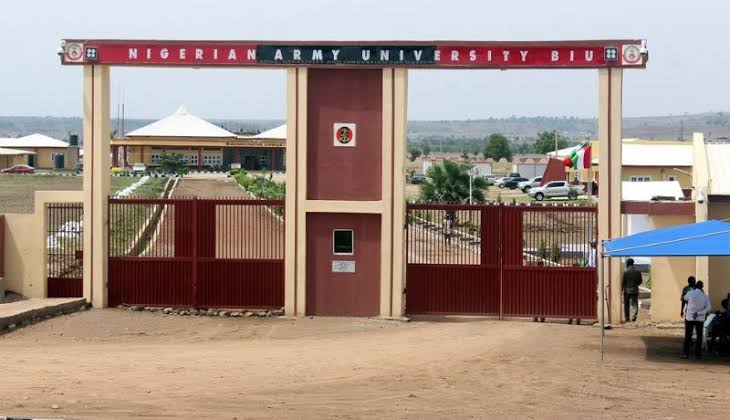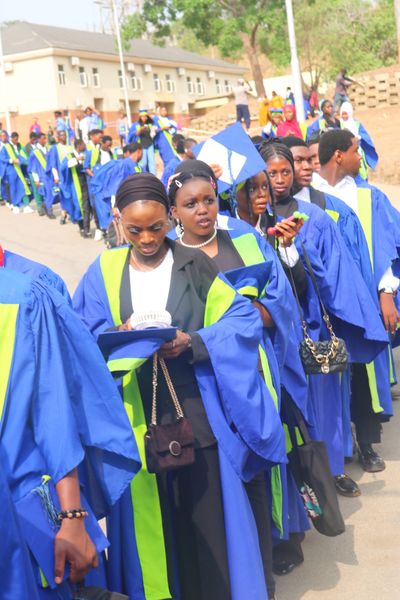•Says schools’ resumption ‘ll be in phases
•Recommends distance learning, satellite centres, online teachings, learning, others
•Also recommends staggered classes, attendance of pupils, students
•To fumigate schools, restructure classes in line with social distancing guideline
•Train teachers on hygiene, other safety measures
THE Federal Government, Monday, released guidelines ahead of the resumption of schools at every level in the country, but it failed to disclose when schools will resume.
The guidelines for the safe reopening of schools and learning facilities after the COVID-19 pandemic outlined actions, measures, and requirements needed for the safe reopening of schools.
The safe distancing measures in the new guidelines require that in schools and other learning facilities, learners should be supported to stay two meters apart.
“However, there are exceptions where the two-meter rule cannot be reasonably applied and other risk mitigation strategies may be adopted. Examples include early years, younger primary school children, and those with additional needs,” the document read.
It added: “In these circumstances, risk assessments must be undertaken with the best interests of the learners, teachers, and other education personnel in mind.
“The scenarios require organising learners and children into small groups with consistent membership and compliance with the risk mitigation strategies. The membership of these groups should not change unless the NCDC public health guideline suggests otherwise.”
With the release of the document, the government will conduct a rapid assessment and determine the funding requirement for upgrading infrastructure and facilities (such as classrooms, furniture, WASH, and ICT facilities) to meet and sustain prescribed safe school reopening requirements.
The Federal Ministry of Education, in the guidelines it developed in collaboration with the Federal Ministry of Environment, the Federal Ministry of Health and health safety experts, said it was time for it to plan and address the eventual safe reopening of schools and learning facilities.
It will be recalled that at the outbreak of the COVID-19 pandemic in Nigeria, schools and all learning facilities were closed in order to safeguard the health and general wellbeing of children, youths, teachers, and educational personnel.
Notable among the items in the guidelines are recommendations for the review of existing policies, practices, and risk mitigation strategies in the use of schools for other purposes, such as distance learning centres, temporary shelters, isolation, quarantine and treatment centres, markets, voting centres, among others.
The government, while noting that, “COVID-19 pandemic poses an enormous risk to the health and safety of learners, teachers, parents, school administrators, education practitioners, and the wider community”, regretted that, “More than 1.5 billion children and young people globally have been affected by school and university closures.
“As a responsible government, it is also our duty to provide comprehensive guidelines for a safe and hitch-free reopening of schools and learning facilities. We do so knowing that the health, safety, and security of learners,
teachers, education personnel, and families are priorities,” the government said in a guideline signed by the Ministers of Education, Mallam Adamu Adamu and Hon Chukwuemeka Nwajiuba.
The guidelines dealt extensively on equitable plans for school reopening and operations.
The document focuses on attendance, social distancing, hygiene, cleaning, and non-pharmaceutical interventions for safe and healthy school activities and programmes.
Minister of Education, Adamu Adamu, explained that the need to develop the guidelines became imperative, “Given that COVID-19 may be with us for a while.”
He said the guidelines also highlight the urgent need to maintain and improve upon distance-learning programmes.
“Our aim is to identify and strengthen programmes that will guarantee the recovery of learning gaps resulting from the pandemic,” Adamu said, adding that “The guidelines were drafted in close coordination with health, environmental, education, and school safety experts who were tasked with the responsibility of charting a pathway for safely reopening our schools and learning facilities for quality teaching and learning.”
The approach, according to him, ensured that stakeholders provided regular feedback throughout the process.
“The Federal Ministry of Education expresses gratitude to the Presidential Taskforce on COVID-19, the Federal Ministry of Health, Nigeria Centre for Disease Control (NCDC), and the Education in Emergencies
Working Group in Nigeria (EiEWGN) for their support and contribution to the development of the guidelines.”
While noting that, “Collaboration and partnerships are also a key focus of this document”, Adamu “thank the various stakeholders who have pledged their support and assistance toward the implementation of the guidelines.”
The goal of the guideline, the government explained, was “to support and facilitate prompt and safe achievement of the objectives of the Nigeria Education Sector COVID-19 Response Strategy.
“The guidelines will assist federal, state, and local governments and their relevant ministries, departments, and agencies (MDAs), families, communities, and authorities in decision-making, approach modelling, and operational planning for safely reopening schools, recovering pre-pandemic capacities, and institutionalising good safe school practices for the transformation of the education sector in the long term,” it further explained.
It added: “The availability of these guidelines and implementation of its recommendations will ensure that all stakeholders within the educational system have a sense of their rights and responsibilities.
“In addition, this will help learners, teachers, parents, guardians, communities, and the larger society to trust the process of reopening and be assured that learning will continue in a safe and protective environment.
“This will also support governments in education reforms and effective service delivery during and post COVID-19 pandemic in Nigeria,” it stressed.





 Business6 months ago
Business6 months ago
 celebrity radar - gossips4 months ago
celebrity radar - gossips4 months ago
 celebrity radar - gossips4 months ago
celebrity radar - gossips4 months ago
 Business3 months ago
Business3 months ago










